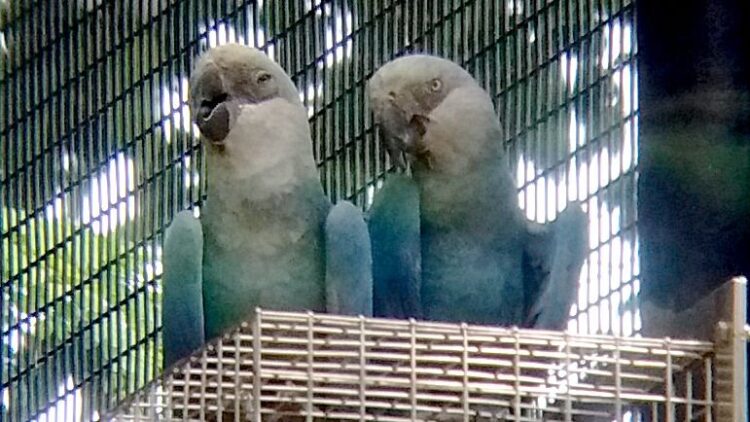The world is reacting to the news that eight bird species have officially been labelled as extinct in the wild after researchers re-examined how species end up on endangered and extinct lists.
One vibrant blue species, the Spix’s macaw, may be the most recognizable of the species on this list, as it inspired characters in the movie Rio .
In total, eight bird species have been confirmed extinct in the wild.
A statistical analysis performed by BirdLife International confirmed that the bright blue Spix’s macaw, the poo-uli, the cryptic treehunter, the Pernambuco pygmy-owl and several other bird species can officially be defined as extinct in the wild.
Many of us will remember Blu from the 2011 animated movie ‘Rio.’

Blu, voiced by Jesse Eisenberg in the film, was inspired by the Spix’s macaw, which is otherwise known as the blue macaw.
So beautiful, isn’t it?
The sad and coincidental thing is that in the movie, Blu thought he was the last of his species.
Let’s just pause here for a full body cry real quick. Obviously Blu got a happy ending in the movie, but things didn’t work out quite so well for the real Spix’s macaws.
Pictured here is a Spix’s macaw couple.

Rio ‘s artists did their homework, because these two look a lot like the movie’s Blu and Jewel.
So why are we hearing this sad news? What caused these species to go extinct in the wild?
The primary reason these bird species have lost their footing in the wild is massive deforestation.

In the past , most bird extinctions have resulted from hunting or invasive species attacking birds contained to a small-island environment.
This wasn’t the case for many of the species labelled extinct in the wild in BirdLife International’s analysis.

Scientists believe deforestation in South American countries caused most of the extinctions in the current list.
Rescue efforts for the Spix’s macaw will have to focus on breeding among the birds remaining in captivity.
The world is reacting to the sad news.
And many are reminding people that it’s not just the bird made famous by Rio that we’ve lost — and pointing out the recurring theme of habitat loss and logging as the reasons for their loss.
Having an animated movie we all loved starring the now extinct in the wild bird doesn’t help the sadness.
BRB, gonna go watch Rio on repeat forever. It’s hard to see them anywhere else now, right?
It’s hard not to be angry when innocent wildlife is ruined by humans.

It’s hard blame this Twitter user’s aggressive tone — animals whose populations are in crisis take great efforts to reverse, much more than it takes to get them into trouble, and there just seem to be more and more extinctions every year.
It’s clear that many people learned of Spix’s macaw after seeing ‘Rio.’
Perhaps the most disappointing aspect of this news is that these species went extinct in the wild purely because of human activity. It’s on us and we have a responsibility to do better.
This one is on us, and we have a responsibility to do better.

And it’s worth noting that many organizations and dedicated researchers and conservationists are doing their very best for all the species in danger. Although it’s clearly an uphill struggle, efforts to save the Spix’s macaw are underway.
Conservationists have been breeding the Spix’s macaws in captivity in hopes of rescuing the species.
The Association for the Conservation of Threatened Parrots released eight individuals into the wild in Brazil, trying to re-introduce the birds to their natural habitat. Of course, it will be a struggle, but efforts like this are the only way to get the Spix’s macaw off the extinction list.
If you’d like to learn more about wildlife conservation, please visit https://www.wcs.org/ .

















































